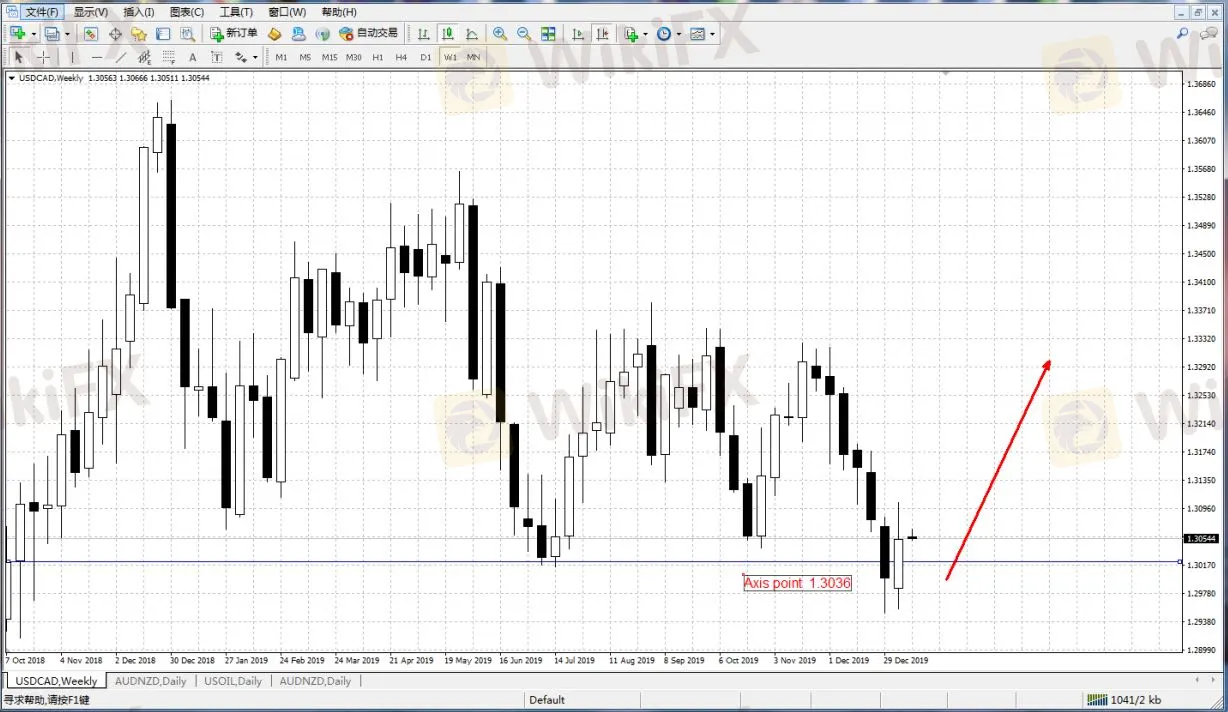简体中文
繁體中文
English
Pусский
日本語
ภาษาไทย
Tiếng Việt
Bahasa Indonesia
Español
हिन्दी
Filippiiniläinen
Français
Deutsch
Português
Türkçe
한국어
العربية
CAD Will Have Less Upward Momentum in the New Year
Lời nói đầu:As the G10 currency that performed the best in 2019, Canadian dollar may see a rather smooth horizontal trend this year partly because weakening domestic economy, and partly because the positive influence of easing trade tensions has been fading. CAD rose 5% against the USD in 2019, with nearly half of the increase gained in the last few weeks, benefiting as several other currencies from a reduce of risk factors at the end of 2019.
As the G10 currency that performed the best in 2019, Canadian dollar may see a rather smooth horizontal trend this year partly because weakening domestic economy, and partly because the positive influence of easing trade tensions has been fading. CAD rose 5% against the USD in 2019, with nearly half of the increase gained in the last few weeks, benefiting as several other currencies from a reduce of risk factors at the end of 2019.
Recently released data showed Canada‘s economy is slowing down, suggesting a great likelihood of interest rate cut from the central bank. The Bank of Canada had held interest rate at 1.75% unchanged last year, amid a wave of rate slash by major central banks like the US Federal Reserve and the European Central Bank. Statistics released in the recent few weeks show Canada’s economy shrank 0.1% in October, 2019, while November saw a decline of over 70,000 jobs. Canadas annualized growth based on the quarter-over-quarter rate of Q4 is estimated to be under 1%.
As risk factors will not significantly reduce in 2020, from a technical perspective, 1.3036 will be the pivot point for USD/CAD in the first half of 2020, and if the exchange rate remains above this level, USD may rise against CAD.

Miễn trừ trách nhiệm:
Các ý kiến trong bài viết này chỉ thể hiện quan điểm cá nhân của tác giả và không phải lời khuyên đầu tư. Thông tin trong bài viết mang tính tham khảo và không đảm bảo tính chính xác tuyệt đối. Nền tảng không chịu trách nhiệm cho bất kỳ quyết định đầu tư nào được đưa ra dựa trên nội dung này.
Xem thêm

Brexit chính thức thông qua, những tổn thất từ phía EU
Anh đã chính thức tách khỏi EU vào ngày 31 tháng 1 năm 2020, hai bên có kế hoạch bắt đầu đàm phán để đạt được các thoả thuận quan hệ trong tương lai. Chúng tôi cho rằng, Brexit sẽ có nhiều tác động tiêu cực đến khối Liên minh Châu Âu EU.

Tình hình kinh tế vĩ mô hạn chế xu hướng đồng AUD
Dữ liệu mới nhất cho thấy tỷ lệ CPI quý IV của Úc là 1,8%, vẫn thấp hơn so với mục tiêu dài hạn của RBA là 2% -3%, kể từ năm 2017, tỷ lệ lạm phát cũng không đạt mức mục tiêu.

GBP- Tìm kiếm manh mối từ dữ liệu kinh tế
Cuộc bầu cử ở Anh vào cuối năm 2019 diễn ra trong bối cảnh suy thoái kinh tế. Dữ liệu mới nhất cho thấy tăng trưởng kinh tế của Vương quốc Anh đã bị đình trệ và thị trường lao động mạnh mẽ một thời đã bắt đầu suy yếu. Trong nửa đầu năm 2020, đồng bảng Anh có thể bắt đầu định hướng lại từ nền kinh tế trong nước, Ngân hàng trung ương và bộ dữ liệu kỳ vọng quan trong nhất được công bố vào tháng 3. Ngoài ra, các cuộc đàm phán Brexit chỉ mới ở giai đoạn đầu, liệu cuối cùng có đạt được thoải thuận tự do thương mại hoàn toàn hay không cũng là một nhân tố rất quan trọng.

AUD - Nhu cầu thị trường trong và ngoài nước đều có phần giảm sút
Sàn môi giới
FXCM
STARTRADER
EC Markets
Saxo
XM
HFM
FXCM
STARTRADER
EC Markets
Saxo
XM
HFM
Sàn môi giới
FXCM
STARTRADER
EC Markets
Saxo
XM
HFM
FXCM
STARTRADER
EC Markets
Saxo
XM
HFM
Tin HOT
Tin tức Forex 31/03: Cảnh báo về website giả mạo sàn giao dịch FP Markets
Hướng dẫn nhận VPS Forex miễn phí trên WikiFX: Bí quyết nâng tầm giao dịch của bạn
Pi Network hôm nay và bí ẩn về giao dịch 922 tỷ Pi
WikiFX Review sàn Dupoin 2025: Có đủ tiềm năng để sánh ngang Exness?
Tính tỷ giá hối đoái







